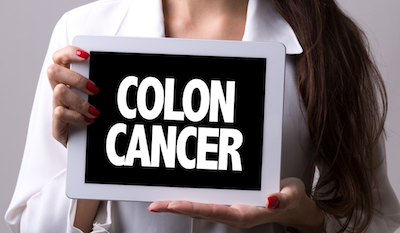When cancer strikes the large intestine, which is responsible for the lower workings of the digestive system, it is called colon cancer. When the symptoms of colon cancer are paired with a diseased rectal area, a doctor will treat the symptoms of colorectal colon cancer, which is known to create the second-leading source of cancer-connected deaths throughout the United States. Despite the high numbers of colon cancer cases, regular screening and doctor visits when one suspects colon cancer symptoms is vital to effectively treating the disease. It is also important to know that the main sign alerting of the invasion of cancer in the colon is seen through the development of small polyps, which in turn, cause very little colon cancer symptoms to show. Regular screening tests are the only way to detect this occurrence.
Symptoms of Colon Cancer
It is not uncommon to bypass colon cancer early symptoms while the first traces of the disease develop. When colon cancer symptoms do arise, individual experiences depend on the size of the cancer, and where it can be found in the large intestine. If you should suspect any of the following symptoms of colon cancer, you should certainly make an appointment with your doctor to have an immediate screening:
- Bowel Changes: If you should experience any continuous bouts of diarrhea or constipation for more than a couple of weeks, you might be suffering from a symptom of colon cancer. Sometimes an individual may also feel that their bowel doesn’t completely empty when going to the bathroom.
- Changes in Stool: The narrowing of the stools, as well as other changes in consistency are also signs of colon cancer.
- Blood: Rectal bleeding may occur, or blood might be present in the stool.
- Abdominal Pain: Persistent discomfort may arise in the stomach, very similar to cramps or gas.
- Weight Issues: Sometimes an unexplained loss of weight may take place.
Since no one is too young or old to develop the symptoms of colon cancer, there are a few risk factors that make some individuals more susceptible to the disease. For instance, long-lasting inflammatory diseases affecting the colon, such as Crohn’s disease will increase the chances of colon cancer symptoms. Additional risk factors to keep in mind include family history, hereditary disorders, low-fiber diets, inactive lifestyle, and excessive tobacco use and alcohol consumption. Diabetics also face up to a 40% increased chance of developing the symptoms of colorectal colon cancer.
When colon cancer symptoms like blood in the stool or extensive bowel changes arise, it is advised to immediately seek the advice of a medical professional.

No Comments